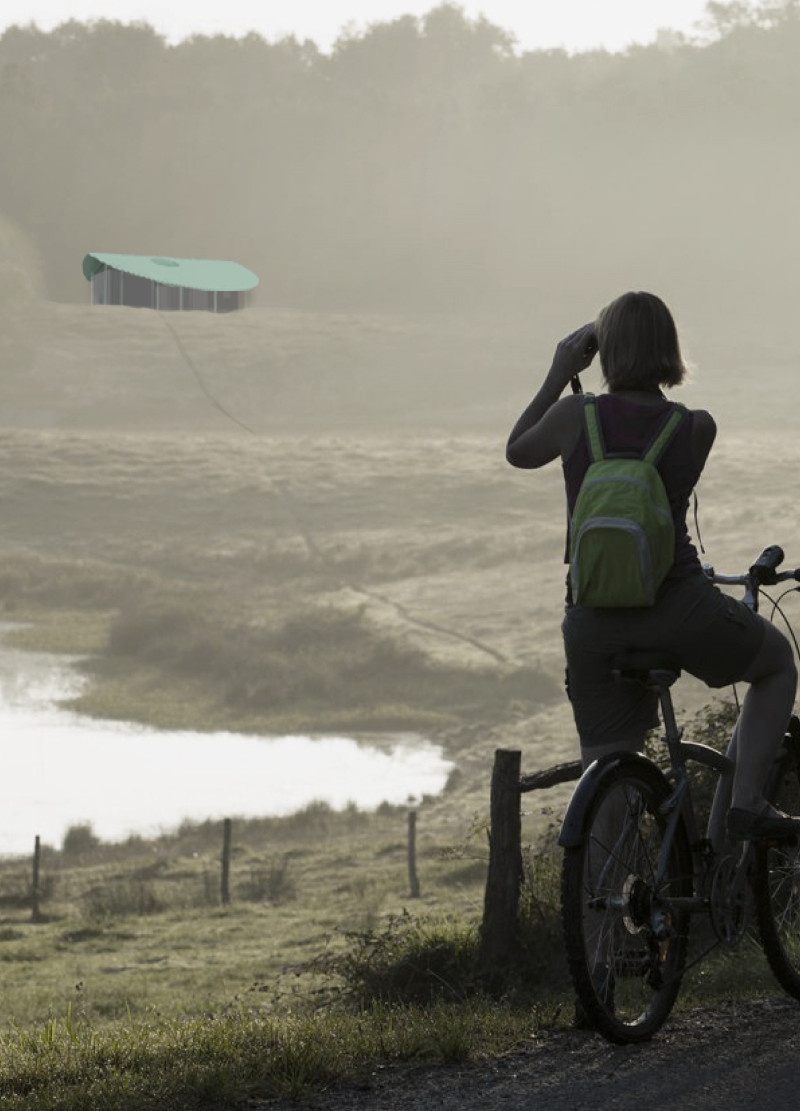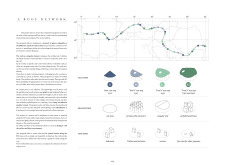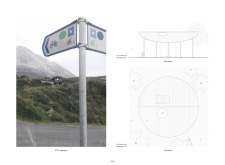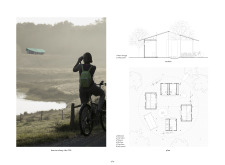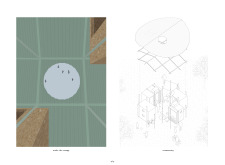5 key facts about this project
A key feature of this project is the variety of scales and functions offered through the velo stops. Each stop can be categorized into four types: Basic Rest Stop (S), Level 1 Rest Stop (M), Level 2 Rest Stop (L), and Level 3 Rest Stop (XL). This typological approach allows for flexibility, addressing specific user needs at different points along the cycling route. For instance, smaller stops provide quick rest facilities, while larger stops offer amenities for longer stays such as sleeping quarters and communal spaces.
Sustainability informs the material specifications of the project. The main materials employed include prefabricated wooden structures, which offer ease of assembly and connection to the local environment, recyclable materials that minimize ecological impact, and systems for solar energy generation and water management. These choices facilitate self-sufficient operations, reducing dependency on external resources and promoting responsible environmental practices.
An important aspect of the project's design is its integration with the natural environment. The architecture emphasizes open-roof designs that enhance natural ventilation and light penetration while allowing views of the landscape. This approach fosters a direct connection between users and their surroundings, enriching the overall experience of rest along the route. The interconnectivity of the velo stops along EuroVelo 6 provides a cohesive identity that promotes community and encourages exploration of the landscape.
In summary, "A Roof Network" exemplifies a thoughtful architectural response to the needs of cyclists along the EuroVelo 6 route. Its emphasis on modularity, sustainability, and environmental integration sets it apart from conventional rest stop designs. For a detailed understanding of the architectural plans, architectural sections, and architectural designs that inform this project, readers are encouraged to explore the presentation of the project for further insights into its innovative architectural ideas.


